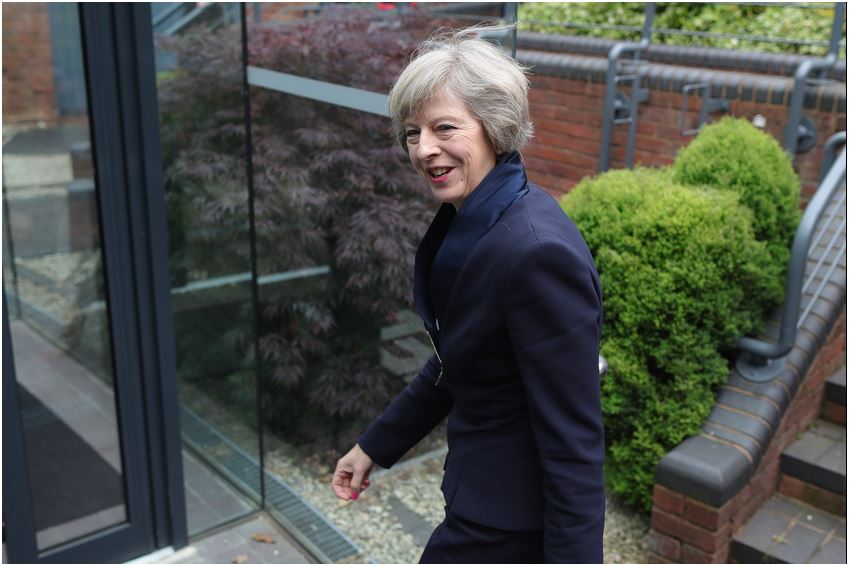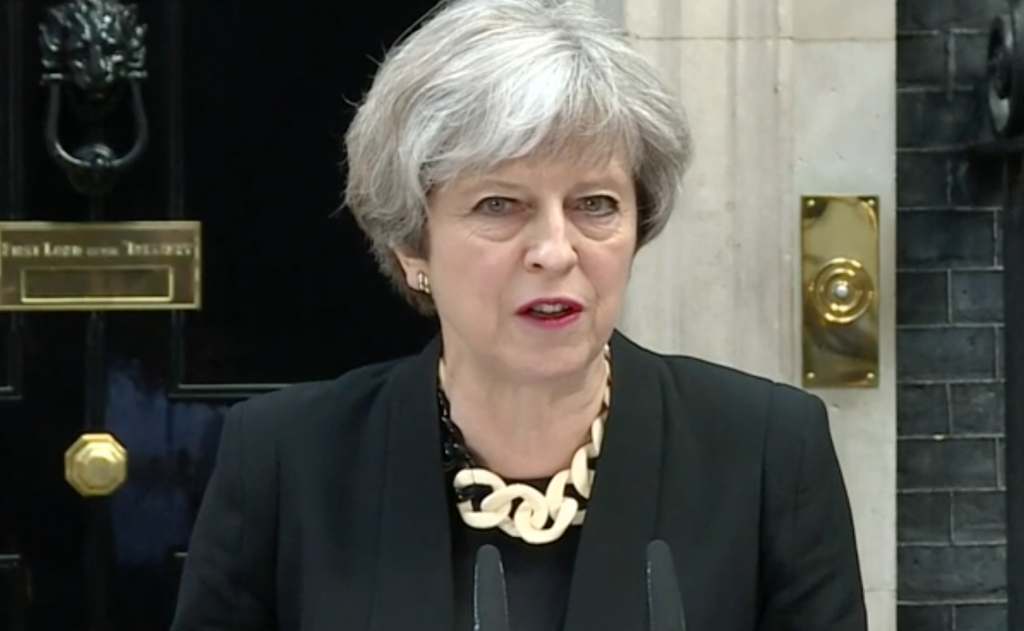In 2017 she lost her majority. In 2018, she lost her authority. Tonight, she lost her Brexit plan. So, what happens next?
Within seconds of the biggest parliamentary defeat in modern history, a humiliated Theresa May announced she would agree to a vote of confidence in her own government.

But Jeremy Corbyn had already beaten her to the punch, tabling his own emergency motion to demand a general election.
The House of Commons has cleared its timetable for the emergency debate to take place all day on Wednesday, with a vote at 7pm.
And that’s just the start. There are lots of different, inter-locking outcomes. Here’s how the next few days could pan out…
Will we get a general election?
Like any leader of the opposition, Jeremy Corbyn sees a general election as his number one priority.
Under the Fixed Terms Parliaments Act, if May loses a confidence vote by a simple majority, she has two weeks to try to find enough support to form a viable government.
If she can’t, Corbyn can then try to find alliances to form his own administration. After 14 calendar days, May would face a second confidence vote and if she loses that, the UK will have another general election.
But even if the motion fails on Wednesday night, the Labour leader is perfectly free to try again at a point when he feels he can get more success.
His spokesman pointed to the 1970s when it took six confidence votes to unseat the sitting government: “There have been situations in the past where there have been no confidence votes which haven’t succeeded on the first occasion.”
The appetite among Tory MPs to think the unthinkable – triggering a general election that could damage their party – may increase if parliament looks like it is heading for a no-deal Brexit on March 29.
Time is running out, however. Under the Electoral Registration and Administration Act 2013, 25 working days are needed for an election campaign. So MPs really have until mid-February to act, if they are to hold polling day before the UK quits the EU.
In reality, an extension to Article 50 – the two-year legal timetable for Brexit – would be needed to allow more time for negotiations with the new government.
Can Brexit be stopped?
The only way Brexit can realistically be halted is if MPs either back a second EU referendum, or if there is a general election in which Labour campaigns to Remain in the EU, and wins.
Soon after the Leave result in 2016, many dismissed as ridiculous the idea that Britons could be asked to somehow re-run the referendum.
But backers of a so-called ‘people’s vote’ have stepped up a highly successful campaign since last summer, claiming that the public have a right to endorse or reject the kind of Brexit the government has finally drafted.
The campaign got its biggest ever boost when Labour adopted a new policy last September. “If we cannot get a general election, Labour must support all options remaining on the table, including campaigning for a public vote,” the policy stated.
Yet Jeremy Corbyn’s closest aides stress that a public vote is just one option and not the default or preferred option.
Some Labour MPs suspect Corbyn will do everything possible to avoid holding a new referendum, partly because of worries about Leave voters in Labour’s marginal and heartland seats. Others, like shadow chancellor John McDonnell, seem to be holding open the option more strongly.
The real problem is one of numbers. Although a sprinkling of Tory MPs (and even ministers privately) back the idea, there are so far not enough MPs overall to give a ‘people’s vote’ amendment a majority.
Even if MPs opted to back one, legal requirements on impartiality mean it could take at least a year to hold a new referendum. Again, Article 50 would need to be extended. And to actually win, any Remain referendum campaign would have to enthuse voters in a way it failed in 2016.
Curiously, seconds after the government’s defeat was announced, European Council President Donald Tusk took to Twitter to suggest the UK should stay in the EU, arguing the prime minister’s historic loss in parliament left a deal looking “impossible”. He kept open the idea of Brexit being reversed.
Will May try again?
The scale of the defeat – truly catastrophic rather than merely awful as some whips had hoped – makes it very difficult to see how May can win over rebels by merely tweaking her defeated deal.
Some 118 Tory MPs voted against her plan – almost exactly the same number of MPs who voted to oust her as party leader (117) last month.
That suggests she may have to rely on Labour MPs to get any deal through Parliament.
Crucially, she said May would hold meetings with “senior Parliamentarians from across the House” to identify “what would be required to secure the backing of the House”. These secret talks will start from Thursday.
Under the EU Withdrawal Bill, May is legally required to come up with a full statement within three days. No.10 said it “expects” her to make that statement on Monday and table a new Brexit motion at the same time.
She then has some breathing space of up to seven ‘sitting days’ of the Commons (January 30), before MPs vote again on any new deal. Sources suggest the fresh vote would take place later next week.
May desperately needs something new to persuade both Tory and DUP MPs that the UK won’t be locked indefinitely into the controversial Northern Ireland backstop, the link to EU trade regulations aimed at keeping the border with Ireland open.
That “something” may be a new UK-EU joint legislative document that clarifies in law that Britain will not be tied to Brussels rules without end. The EU has made clear it won’t renegotiate the withdrawal agreement for Brexit, but it might grant this concession to avoid a no-deal.
However, with a massive number of her own MPs against her, May’s ‘Plan B’ can’t really be ‘Plan A-plus’. She has a nightmare balancing act now: offer Labour MPs too much and she risks further bleeding Tory support; offer Tory MPs too much and the EU will never accept it.
She’s a zombie PM in a zombie Parliament, and may get only one more time to resurrect her deal from the dead.
Will MPs back a softer Brexit?
A so-called ‘Norway-style’ Brexit is being pushed by some Labour and Tory backbenchers. It aims to keep the UK in the EU single market, ensuring free trade to continue on services, which makes up 80% of the UK economy.
The plan also aims to achieve a customs union with the EU, a key element that would remove the problem of the Northern Irish border.
For some MPs there are major downsides, not least that the single market would mean no new curbs on EU migration, something many Leave voters have demanded. A customs union would also mean the UK couldn’t strike its own free trade deals independently of Brussels.
Both of these are ‘red lines’ for the PM and many Tory MPs who think it would mean ‘Brexit in name only’ (also known as ‘Brino’). But if May’s own deal is rejected repeatedly she may have no choice.
Straight after the defeat, a No.10 spokesman said May’s talks with MPs would take place on the ‘basis’ of her current deal, with the ‘principles’ being that the UK took control of its ‘money, borders and laws’ and retained an ‘independent trade policy’.
Each of those ‘red line’ principles may have to be erased. An independent trade policy is impossible if May supports a customs union. Control of borders is very difficult if she backs a single market.
A ‘Norway-style’ Brexit would need more negotiation with Brussels and probably therefore an extension to Article 50. Some argue, however, that because the plan makes the Northern Ireland backstop irrelevant, May’s withdrawal agreement could pass and the ‘political declaration’ tweaked instead.
The main attraction of ‘Norway Plus’ for Labour MPs, possibly including Jeremy Corbyn, is that it is consistent with his pledge at the last election to uphold the 2016 referendum result. Tories would have to swallow a lot, however, to accept it.
Will the Commons get to choose which ‘Plan B’ it wants?
The real action on Brexit talks between May and other parties starts next week. MPs held off proposing their alternatives today because they wanted a clear signal that May’s deal was dead first.
It is now up to them to work out which ‘Plan B’ can get a majority, with detailed amendments to the government’s next motion. But tactics will come into play too.
Supporters of the rival plans for a ‘Norway-style’ Brexit and a second referendum want their solution to be the last one standing after all the other options have failed.
On this, as on many other matters of procedure, the Speaker of the Commons suddenly assumes even more importance than usual.
Thanks to a hung parliament tying the government’s hands and to his own decision to tear up previous conventions, John Bercow is now a very important figure. He may, for example, refuse to allow May to keep bringing back her deal several times.
There is one other option: the PM could proactively agree to demands from some of her Cabinet ministers to hold a series of ‘indicative’ votes on each of the options. But No.10 sources suggest that’s unlikely.
Are we heading for a no-deal Brexit?
Under the EU Withdrawal Act 2018, the default position is that the UK will leave the EU on March 29, 2019 – with or without any agreement.
Many Tory Brexiteers have hoped that they can thus “run down the clock” while the Commons squabbles over Brexit, and just wait for exit day to arrive.
Theresa May’s language has changed dramatically on this in the past two years. In January 2017, she uttered the infamous line that “no deal is better than a bad deal”. Having lost the last election, she’s been forced to now effectively threaten Tory MPs that “my bad deal is better than no Brexit at all”.
Some Cabinet ministers say that May has also changed tack after reading detailed forecasts from civil servants setting out the full “disaster” for trade, and, crucially, security policy if we quit without a deal.
Labour has long argued no-deal is a negotiating “bluff”, and despite billions being spent on emergency contingency plans, it looks very much like a bluff now.
Yet the only way to be sure to halt no-deal is if parliament gives May no choice politically, and possibly legally. That’s why Nick Boles’ new EU Withdrawal Bill is being seized on as a way through the logjam. It could ‘instruct’ May to choose whatever ‘Plan B’ the Commons agrees on.

